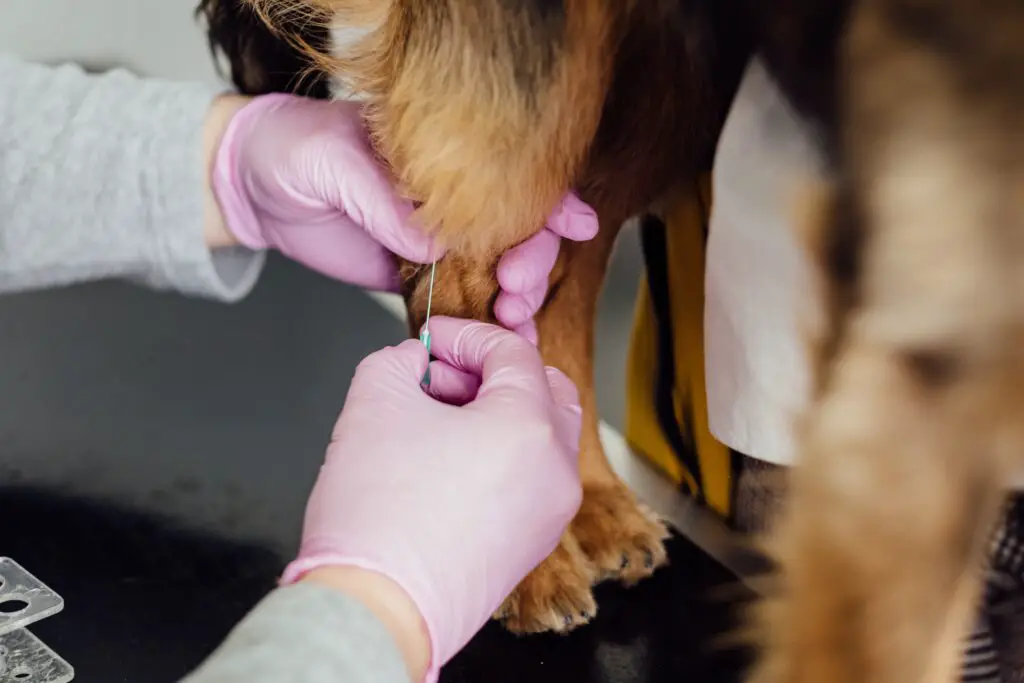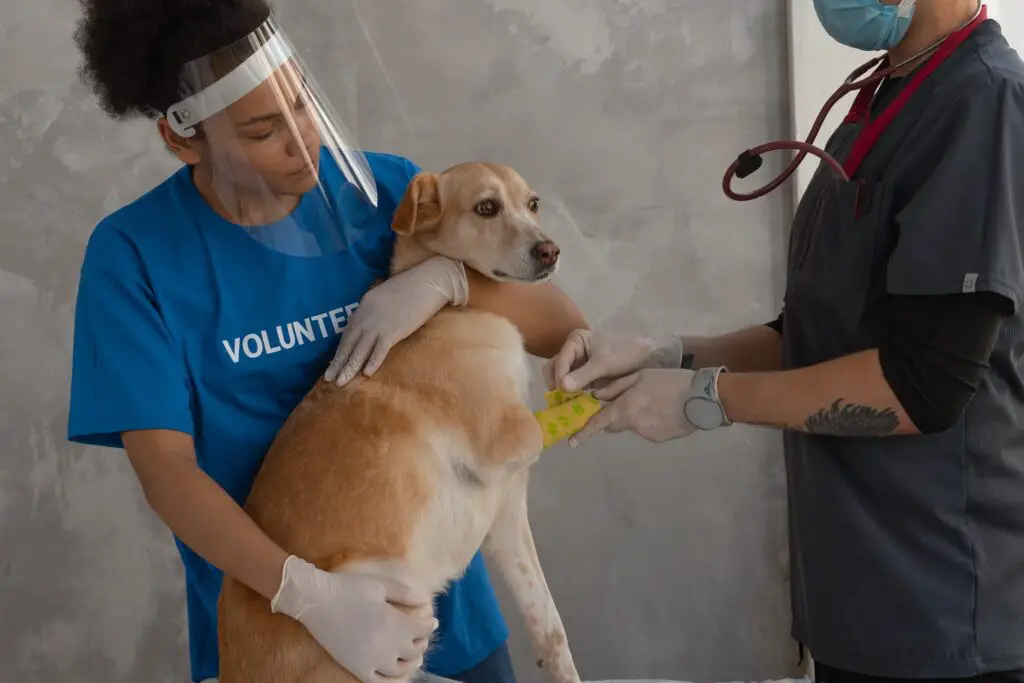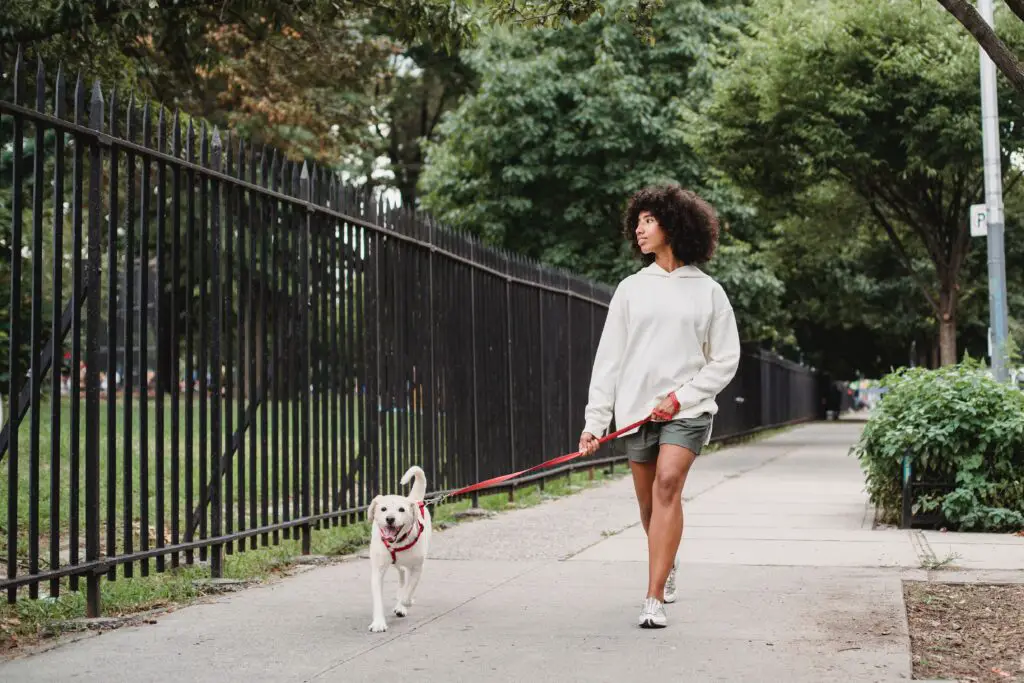As a pet owner, you want the best for your furry friend. You may wonder if vaccinations are necessary or just an extra expense. They may worry about cost, safety, or effectiveness. Yet what happens if your dog doesn’t get shots?
As a veterinarian, I have seen the importance of vaccinations in protecting dogs against serious diseases. However, some pet owners need to be more confident and aware of the need for regular vaccinations. This article will help you understand the risks of not vaccinating your dog and provide solutions to keep them safe and healthy.
Contents
What Happens if Your Dog Doesn’t Get Shots?
Immunizations are essential for a dog’s health and well-being. If dogs do not obtain the required vaccines as puppies and adults, they may become ill from viruses and bacteria from which vaccinations would have shielded them. Failing to get your dog vaccinated can expose them to unnecessary risks and potential health complications.
Without the protection offered by vaccines, your dog becomes vulnerable to various infectious diseases. These diseases are severe enough that vaccines against them – called core vaccines – are considered an essential part of responsible pet care. They are:
- Parvovirus: This highly contagious attacks the intestinal tract and causes vomiting, bloody diarrhea, and dehydration that can quickly turn fatal.
- Distemper: It is an extremely contagious and often lethal viral disease that affects the respiratory, gastrointestinal, and nervous systems. It causes symptoms such as coughing, fever, and seizures, leading to permanent neurological damage or death. Dog vaccine like DA2PPv can help combat distemper.
- Rabies: It is a viral disease that affects the central nervous system and is transmitted via the saliva of infected animals. It is inevitably fatal once symptoms appear.
- Adenovirus-2: This virus is one cause of canine infectious respiratory disease. It is easily transmitted between dogs and often causes severe pneumonia and other respiratory symptoms.
Aside from putting your dog at risk, skipping vaccines also jeopardizes the health of other dogs your pet interacts with. You can give your dogs proper immunizations and vaccines so they won’t serve as carriers, transmitting diseases to susceptible animals and perpetuating the infection cycle. This can be particularly problematic in communal spaces, such as:
- Dog Parks: This can lead to outbreaks and affect many pets.
- Boarding Facilities: When dogs are boarded together, the risk of disease transmission increases. There are vaccines that a dog needs to be boarded.
- Training Classes: Participating in them is an excellent way to socialize dogs. However, they pose a risk to others.
What Is the Importance of Vaccinations?
Vaccinations stimulate the dog’s immune system to create a defense mechanism that can effectively combat life-threatening diseases, preventing severe symptoms, long-term complications, or even death. Vaccinations also benefit public health in addition to offering individual protection.
Some diseases that affect dogs can be transmitted to humans, posing a threat to the entire community’s well-being. By ensuring your dog receives necessary vaccinations, you are actively participating in the prevention of zoonotic diseases, protecting both your beloved pet and those around you.
Are There Any Risks With Vaccines?
No medical procedure comes without any risks at all. Vaccines have potential side effects usually amount to short-lived soreness at the injection site or a day or two of the dog feeling mildly under the weather. How long you can wait after a dog vaccine depends on your pet’s reaction to the injection.
Severe adverse reactions are extremely rare. Your dog’s risk depends on factors like age, medical history, and type of vaccine given. Overall, vets maintain the dangers posed by these viruses greatly outweigh any nominal risks from vaccination.
What Precautions Are Reasonable?
While the core vaccines are crucial for almost all dogs, there are some precautions those concerned with over-vaccination can take:
- Do not give unnecessary vaccines: Some diseases rarely seen in certain geographical regions may not warrant vaccines. Discuss what’s genuinely needed with our vets at Care Animal Hospital.
- Ask about the 3-year rabies vaccine where allowed: Some states now permit this option that reduces frequency.
- Do antibody titer tests: These blood tests can reveal if your dog already has sufficient immunity, eliminating the need for a booster.
- Separate vaccines by 2+ weeks: Soreness and side effects are primarily from multiple shots simultaneously. Splitting up vaccines decreases the likelihood of reactions.
Talk to our veterinarians at Care Animal Hospital about tailoring the ideal plan and for your dog check ups and examinations. The safety and protection vaccines provide far outweigh any minimal risks. Do not leave your dog defenseless against dangerous, preventable diseases.
How Important Is Consultation?
It is crucial to consult doctors regarding vaccinations. We possess the knowledge and expertise to guide you in making informed decisions about your dog’s healthcare.
They can customize vaccination schedules based on your dog’s breed, age, lifestyle, and specific risk factors. By working closely with them, you can ensure that your dog receives the necessary shots while minimizing the risk of over-vaccination.
Related Questions
Can a Dog Live Without Shots?
Yes, dogs can live without vaccinations. However, vaccinations are critical for protecting them from avoidable infections, leading to severe sickness, long-term problems, and even death. Dogs are more likely to catch and transmit infectious illnesses without vaccines, endangering their health and the community’s well-being. There are annual vaccines that dogs need to have to ensure they’re healthy.
How Long Can a Dog Go Without Shots?
Dogs should not go for long periods with their core vaccinations. While adult dogs may retain some immunity for 1-3 years, puppies need a series of shots from 6-16 weeks old, depending on the vaccine. That’s how often a dog needs a vaccine. Annual or triennial booster shots are needed throughout their lives to maintain immunity.
What Happens if I Vaccinate My Dog Late?
Vaccinating your dog late may still offer some protection, yet it can leave them vulnerable to diseases during the gap period. Delayed vaccinations can increase your dog’s risk of contracting preventable illnesses, potentially leading to more severe symptoms, complications, and a longer recovery time.
Conclusion
Vaccinations are vital for responsible dog ownership, protecting your dog’s health, preventing disease spread, and maintaining the community’s well-being. Neglecting shots risks severe illness and harms other animals. Contact our vets at Care Animal Hospital, prioritize prevention, and ensure your beloved dog’s long, fulfilling life.



